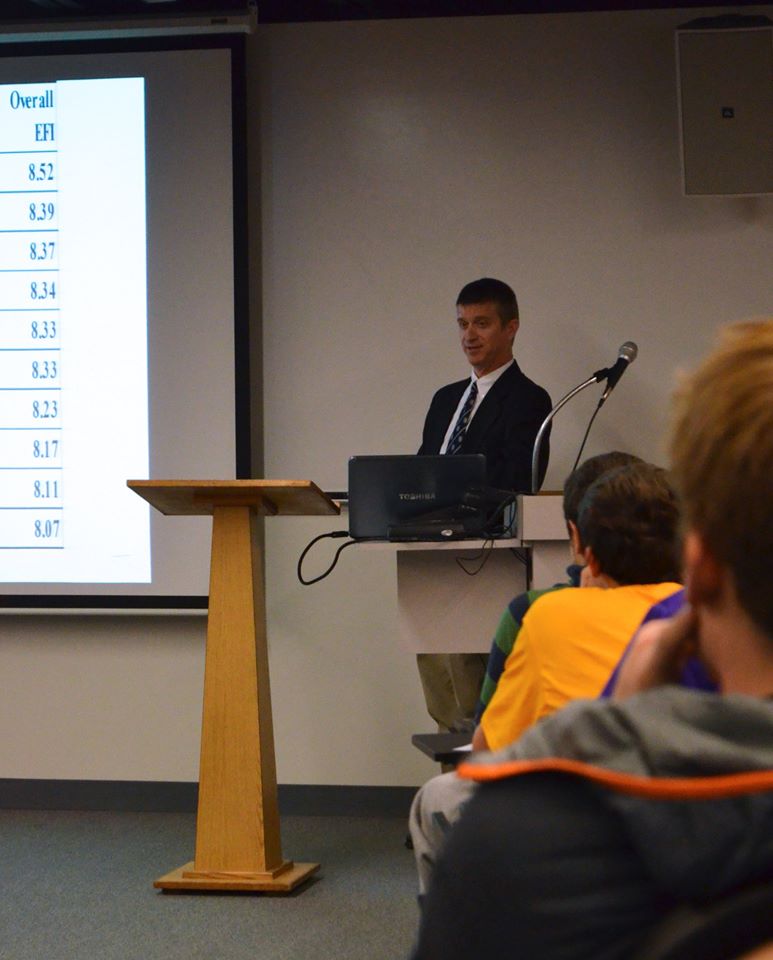By Lian Bunny
News Assignment Editor
Dr. Dean Stansel, associate professor of economics at Florida Gulf Coast University, delivered his speech, “Economic Freedom: What It Is and Why It Matters,” on Nov. 11 in the William F. Walsh Science Center Auditorium.
Stansel is currently directing the Economic Freedom of North America index funded by the Fraser Institute and is on sabbatical to travel and give economic lectures at non-profit organizations, think tanks and universities.
The lecture defined economic freedom in terms of the components of the Economic Freedom of the World Index: size, legal system and property rights, sound money, freedom to trade internationally and regulation.
According to Stansel, the United States is currently ranked 12th of all the countries in terms of economic freedom, dropping from its second-place spot in 2000. New York State is ranked 50th of the US states and Buffalo is ranked 352nd out of 384 areas in NYS.
Stansel examined why the US ranking has dropped. Federal spending has doubled since 2000. According to Stansel, the US has an over-spending problem, not an under-taxing problem.
The Cato Institute found that welfare pays more than the starting wage for a secretary in 39 states, more than an average first-year wage for a teacher in 11 states and more than an entry-level computer programmer in all 50 states.
According to Stansel, this is why entitlement spending is out of control; there are people that need assistance, but the incentives drive behavior that is counterproductive. The Affordable Care Act was proposed to increase taxes and spending, but has caused regulatory uncertainty and unintended consequences. Stansel said changing the proposal after it has been passed is bad for small businesses, because it is hard for them to act in accordance with a changing health care plan.
Stansel also labeled another issue as a “third-party payer problem.” According to Stansel, consumers pay directly for less than 12 percent of healthcare costs. When healthcare pays for the majority, prices increase because payers are not cost conscious and receive so much financial assistance. The cycle continues as prices raise and federal aid rises. When people pay the total amount, they are cost conscious and shop around for the best deals. This prevents prices from rising too high.
Stansel used federal student aid as an example. In the 2013-14 academic year, $169 billion federal student aid was given. That is a 105 percent increase over the past decade. This allows colleges to raise their prices and leads to more student debt.
To refute the under-taxing problem, Stansel used information provided by The Tax Foundation. For this year, the foundation calculated that an individual would have to work until April 21 just to pay their annual taxes. This is three days later than the year before and 11 days later than 2009. This is not including deficits.
In terms of regulatory burden, Stansel said the US’s is high and rising. The federal registrar now contains about 81,000 pages of regulations. The cost of federal regulations in 2012 was $2 trillion.
According to Stansel, the prescription for financial growth is an increase in economic freedom. To do so, the US should reign-in spending, lower taxes and reduce the regulatory burden.






